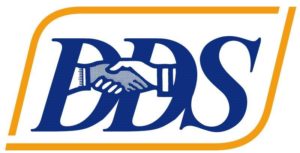ICF/DD, ICF/DD-H, ICF/DD-N, and DD-CNC
Intermediate Care Facilities for Individuals with Developmental Disabilities (ICF/IID) are health facilities licensed by the Licensing and Certification Division of the California Department of Public Health (CDPH) to provide 24-hour-per-day residential services. There are four types of ICF/IID’s, which primarily provide services to regional center clients with developmental disabilities.
- ICF/DD (Developmentally Disabled)
- “Intermediate care facility/developmentally disabled” is a facility that provides 24-hour personal care, habilitation, developmental, and supportive health services to developmentally disabled clients whose primary need is for developmental services and who have a recurring but intermittent need for skilled nursing services.
- ICF/DD-H (Habilitative)
- “Intermediate care facility/developmentally disabled-habilitative” is a facility with a capacity of 4 to 15 beds that provides 24-hour personal care, habilitation, developmental, and supportive health services to 15 or fewer developmentally disabled persons who have intermittent recurring needs for nursing services, but have been certified by a physician and surgeon as not requiring availability of continuous skilled nursing care.
- ICF/DD-N (Nursing)
- “Intermediate care facility/developmentally disabled-nursing” is a facility with a capacity of 4 to 15 beds that provides 24-hour personal care, developmental services, and nursing supervision for developmentally disabled persons who have intermittent recurring needs for skilled nursing care but have been certified by a physician and surgeon as not requiring continuous skilled nursing care. The facility shall serve medically fragile persons who have developmental disabilities or demonstrate significant developmental delay that may lead to a developmental disability if not treated.
- Developmentally Disabled-Continuous Nursing Care (DD-CNC)
- There is an additional facility type, the Developmentally Disabled – Continuous Nursing Care (DD-CNC). The DD-CNC Waiver program provides 24-hour continuous skilled nursing care in home and community-based residential settings to persons with developmental disabilities who are medically fragile. Eligibility criteria requires that DD-CNC Waiver participants be Medi-Cal eligible, enrolled in, and certified by a Regional Center as having a developmental disability, exhibit medical necessity for 24-hour continuous skilled nursing care and free of any clinically active communicable disease. Participants must also meet specific minimum medical criteria as described in the waiver. The program provides home and community-based services that assist Medi-Cal beneficiaries to live in the community and avoid institutionalization. The DD-CNC program is initially licensed as an ICF/DD-N type facility. However, the license is suspended while the facility operates under a Waiver program. DD-CNC development is currently limited by a regional center’s assessed need for this program.
In addition to maintaining licensure through CDPH, ICF/DD, ICF/DD-H, ICF/DD-N, and DD-CNC type facilities must meet the standards and conditions specified in Title 42 Code of Federal Regulations as Intermediate Care Facilities for Individuals with Intellectual Disabilities (ICF/IID).





